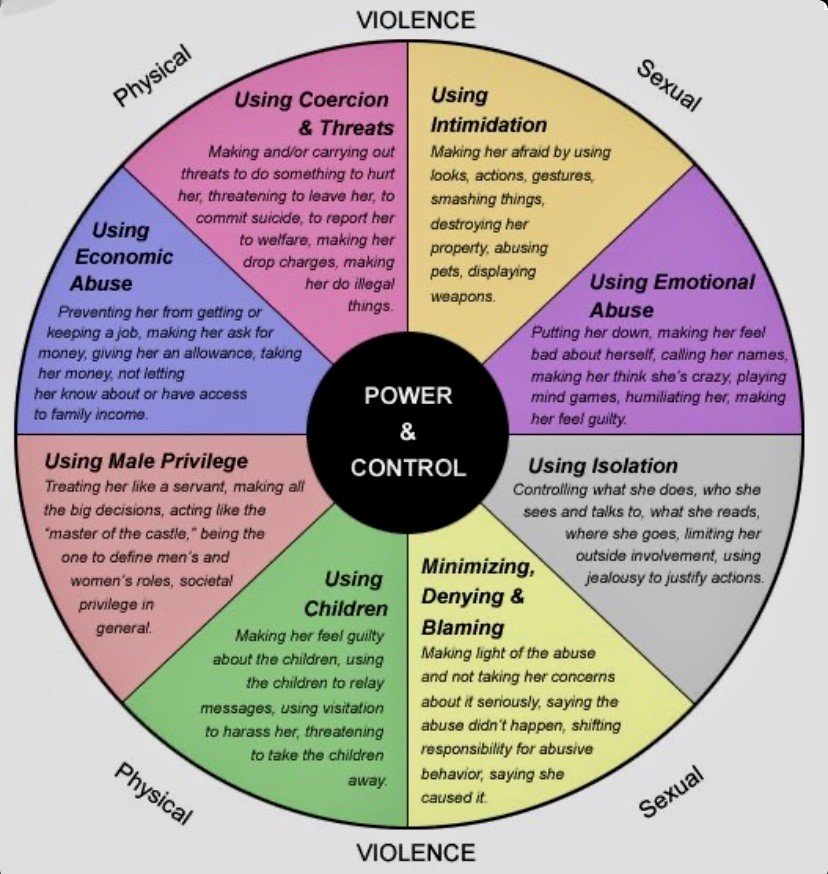
How long will you stay in an abusive relationship before you realize it’s not worth it? The tradeoffs, the ‘benefits’ you are staying for are damaging your children, and shrinking you into a person you don’t even recognize anymore. How long have you known you needed to leave, but didn’t know how, where to go, or what life would look like on the other side?
Staying with a controlling and psychologically abusive person is harming your children more than the effects of leaving, and the unknown fears of starting a new life. You’ve kept up the charade, which means you have the strength to leave. The process of leaving takes courage, a willingness to come out from the shadows, and a desire to stop the madness.
Because you have covered for this person for so long, the most common question you will be asked is “Why did you stay?”
Assumptions are made about why people stay in relationships that they later reveal were unhealthy. People assume it was a lack of courage, perhaps there were “happier times”, or simply the idea of breaking up a family has kept people living within the cycle of abuse. They see the glossy façade of a privileged, enviable family with well-behaved children, and can often find the truth hard to fathom and accept.
In reality, these relationships and the reasons people stay are complex.
The Psychosis of Abuse
People continue to live in abuse because they have been controlled and manipulated to believe they have no other viable options. There are often elements of financial control, among other seemingly simple ways abusers maintain control of the family. When used in tandem, abusers achieve compliance.
“People continue to live in abuse because they have been controlled and manipulated to believe they have no other viable options.”
Leah Hill, Founder at Divorce Strategies Northwest
Abusers chip away at their partner’s self-worth with intention, cunning and skill, leaving their spouse a puddle of wet clay in their hands. They feel they cannot leave; they have become a shell of their former selves.
You may recognize these traits in a neighbor, friend, co-worker; people whose families appear happy, but are hiding a dark secret at home. These individuals will present as skittish, have poor self-worth, apologize on a dime; you can often see fear in their darting eyes. From years of repeated damaging messages, they feel they are unworthy of anything better.
Their identity has been slowly stolen away, piece by piece until they no longer know who they are, what they want, and most importantly, what they are capable of— their abuser defines them. This is a lonely life; abuse is designed to instill complete dependence, so you believe you have no worth, no skill, and no value apart from your abuser.
It begins as small bits of mind control that leave them dependent and uncertain. This messaging is ingrained into their conscious and subconscious mind, erasing the person they once were. Endured repeatedly, this abuse reaffirms, in their now damaged, weakened and vulnerable mind— messages of self-doubt, incompetence, and unworthiness.
“Victims in these relationships forget how their own beautiful intuition works. Their own value system has adapted to appease their abuser, in hopes of not rocking the boat. This is also known as walking on eggshells.”
Leah Hill, Founder at Divorce Strategies Northwest
Because this exposure to criticism is small at first, it becomes normal, with little notice. Akin to increasing the temperature one degree at a time, the person finds themselves living in a metaphorical sweat lodge: How did I get here?
Fear of harsh reprisal causes victims not to challenge or question their partner. Any attempt to confront reality brings on another storm— the denial of truth is abuse. Victims in these relationships forget how their own beautiful intuition works. Their own value system has adapted to appease their abuser, in hopes of not rocking the boat. This is also known as walking on eggshells.
Each incident, each cycle, is followed by a ‘honeymoon phase’ of attention, affection, and a brief break from the negative tension. The intense messaging instills doubts and confusion.… (they) do love you— look at all they do to show you their love!
This is all part of the cycle of abuse and control.
The words of affirmation used by an abuser in the honeymoon periods effectively recalibrate, change and control your instincts, and destroy your inner voice. This overcorrection is intense, intentional manipulation. They convince you that you must be wrong; your own thoughts are wrong. This can’t be bad; he loves me so much.
As time goes by, the cycle of abuse becomes a larger part of life together. This is conditioning. Rationalizing, enduring, covering, explaining away, ignoring, pretending— these are all parts of life within an abusive home. It becomes so normal and so routine that it no longer feels concerning. Like a tangled necklace, your abuser has effectively changed your brain: you now believe this is how love works, is meant to be shown…. and felt.
Abuse has become your love language.
Manipulation and control slowly eat away at your soul, until you are a shell of your former self, frozen into habits and patterns to avoid a blowup. If you find yourself making excuses for your partner and their behavior, understand that within this relationship, your feelings and integrity are unworthy. They do not love you how you should be loved.

Children Living in Abuse
What are children living in intense households like this learning at home? They are watching and experiencing parental interactions, from birth into their teen years. From home, we take ideas, impressions, and habits of how to navigate the world and think about life.
These children learn to live in a state of hyper-vigilance and fear— what happens when you challenge authority with questions or with truth? Is it worth the risk?
We teach our children to be honest, trust their “gut” feelings, and to know their own truth, hoping they will carry this confidence into their adult lives. Abusive homes are not a safe place to learn about life and prepare to face the world: the messaging is incongruent— you cannot trust yourself.
Abusers slowly reprogram, quash, and control natural reactions, opinions, and feelings. Their intimidating narrative is conformity and compliance while suppressing creativity, scrambling intuition, and disallowing independence. This toxic environment of dissonance sends children ill-equipped to trust themselves and make decisions on their own, into a world teeming with influencers. Children need to be empowered to believe in themselves and trust their own instincts and abilities, separate from their parents.
The tension and uncertainty of an abusive home are not the safe haven children need to thrive.
Getting Out: Freedom in Divorce
If any of this feels like your life, you are worth it and you can leave.
Getting away from abuse is intensely hard work. You will discover that it is confusing to learn what real, healthy love feels like. Triggers will come when you least expect them. It takes intention to encourage the fierce, confident, self-assured, smart, in-control-of-your-own-thoughts, independent, and brave person back to life. You must constantly remind yourself that the old messaging is abusive and false.
“Divorce is power. Divorce is the beginning of an amazing new life of growth, happiness and joy for you. There is freedom in divorce.”
Leah Hill, Founder at Divorce Strategies Northwest
Finding the strength to face the truth and leave your abuser is the hardest part. It takes more courage to find your true self again than it does to endure the abuse, year after year. Pursuing freedom takes grit, bravery, determination, and belief in yourself. It means believing that you and your children deserve to know the real you, and to experience life away from abuse.
Divorce is power. Divorce is the beginning of an amazing new life of growth, happiness and joy for you. The rest of life is freedom and will feel like a cool breeze on your soul.
As community members, we must remember that we can never know what truly goes on behind closed doors. It is vital that we believe, empathize, and support victims throughout their journey. One simple gesture of kindness might be the encouragement one person needs to realize that they deserve more, and motivate them to make true, lasting change in their life.
Your Trusted Partner
Whether you’re contemplating a divorce, have already started the process, or are far into the proceedings, do you wish you had someone to share with you the inside scoop on how to save money, time and emotional energy on your divorce?
We’re here for you. We help you consider your options, arm you with practical information, and strategize with you how to navigate your divorce. Feel free to get in touch with us; we are here for you!




